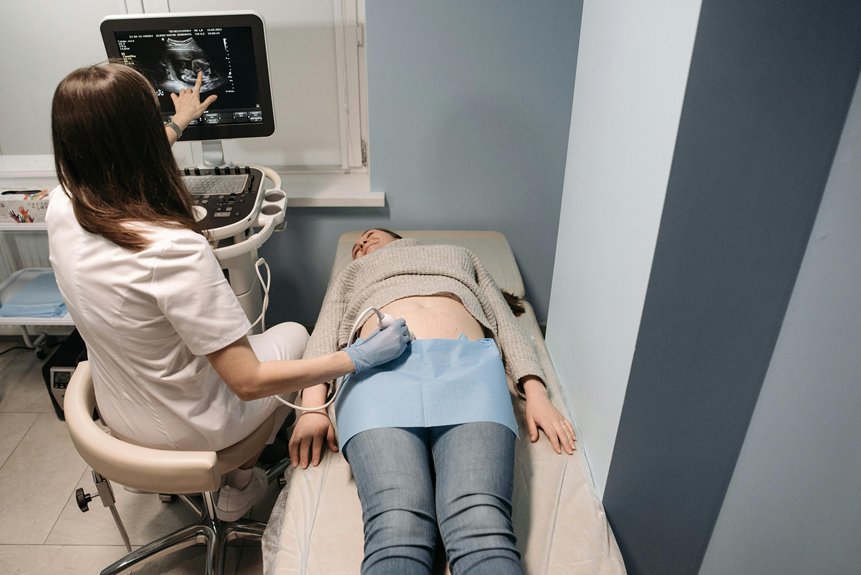Have you ever considered how early identification of mental health issues could change your life or someone else’s? General mental health screening offers a structured way to recognize emotional challenges before they spiral out of control. By understanding this process, you can appreciate its significance not just for individual well-being, but also for fostering a supportive environment. Let’s explore how screening can empower people and why it’s an essential step in mental healthcare.
Key Takeaways
- General mental health screening involves systematic evaluation of emotional and psychological well-being through questionnaires and interviews.
- It aims to identify symptoms of conditions like anxiety and depression for early intervention.
- Early detection enhances treatment effectiveness and promotes better recovery outcomes.
- Screening fosters open discussions, reducing stigma and promoting cultural acceptance of mental health issues.
- Community outreach and tailored programs increase participation and support for individuals in need.
Understanding General Mental Health Screening
When it comes to mental health, understanding general screening is essential, as it can help identify issues before they escalate.
You might encounter various screening tools designed to assess your mental well-being, such as questionnaires or self-assessments. These tools aim to pinpoint symptoms related to anxiety, depression, or other conditions.
By participating in general mental health screening, you’re taking a proactive step toward maintaining your emotional well-being.
Participating in mental health screening empowers you to prioritize your emotional well-being and seek support when needed.
It’s important to recognize that early intervention can lead to more effective treatment options, ultimately fostering a healthier mindset and improving your quality of life.
Don’t hesitate; your mental health matters.
The Process of Mental Health Screening
General mental health screening involves a systematic approach to evaluating your emotional and psychological well-being. You’ll typically begin with self-report questionnaires or interviews that utilize various screening tools. Trained professionals then assess your responses using established assessment methods, identifying any potential concerns.
| Screening Tools | Assessment Methods |
|---|---|
| Questionnaires | Interviews |
| Rating Scales | Observational Assessments |
| Diagnostic Criteria | Clinical Evaluations |
This process helps pinpoint areas needing attention, guiding you towards appropriate resources and support for your mental health journey. Understanding this process is essential for your well-being.
Benefits of Early Detection
Recognizing mental health issues early can greatly enhance your chances of effective treatment and recovery. By seeking early intervention, you can address symptoms before they escalate, leading to better outcomes and a quicker return to stability.
Additionally, when you openly discuss mental health, it fosters stigma reduction, making it easier for others to seek help as well. Early detection not only benefits your individual journey but also contributes to a broader cultural shift towards acceptance and understanding of mental health struggles.
Ultimately, taking these steps empowers you to reclaim control over your life and well-being.
Barriers to Mental Health Screening
Although many people understand the importance of mental health screening, several barriers can prevent them from seeking help. Stigma is a major hurdle; fear of judgment often stops you from reaching out. Additionally, limited access to resources can make it challenging to find appropriate care.
| Barrier Type | Description |
|---|---|
| Stigma | Fear of judgment and discrimination |
| Cost | Financial constraints |
| Accessibility | Limited local services |
| Awareness | Lack of knowledge about options |
Implementing Screening in Communities
Implementing mental health screening in communities is essential for identifying individuals in need of support and fostering a culture of openness.
Community outreach plays a crucial role in promoting screening programs, ensuring they reach diverse populations. By partnering with local organizations, you can raise awareness and reduce stigma surrounding mental health.
Tailoring these programs to address specific community needs enhances participation and effectiveness. When you engage community members in the screening process, you encourage dialogue and empower individuals to seek help.
Ultimately, these initiatives can lead to early intervention, improving overall mental health and well-being within your community.
Conclusion
To summarize, general mental health screening is an essential tool for fostering well-being and promoting early intervention. By recognizing symptoms of anxiety and depression early, you empower yourself and others to seek help and improve overall mental health outcomes. While barriers exist, implementing screening in communities can create a supportive environment that encourages openness and acceptance. Taking this proactive approach not only enhances individual recovery but also strengthens the collective resilience of your community.




